Death Matters
In the article “What Is Death?” by Robert Thurman, published in your Fall 1997 issue, Mr. Thurman criticizes materialists for a view that no modern, educated materialist would ever hold: i.e., that consciousness is a thing of some kind (an “energy reality,” as Thurman calls it) that becomes nothingness at death. He seems to have projected upon materialists his own belief that consciousness is a thing. Materialism does not recognize the existence of any such thing. It supposes that what we call consciousness is nothing more than the physical activity of the brain. For the materialist, what happens to that activity at death is analogous to what happens to the physical activity of your computer when you turn off the power. It simply stops. The energy that once sustained that activity is directed elsewhere, to other physi cal processes. There is no supposition that there is some kind of entity inhabiting the computer, or the brain, which suddenly becomes nothing.
The materialists ‘ idea that conscious experience is exactly identical to physical brain states is implausible enough, in itself, to serve as grounds for a rejection of materialism, without resorting to arguments about whether or not a thing can become nothing. After all, when you see the color blue, you do not see a brain state. There is no part of your brain that turns blue when you look at the sky. Materialists lack a credible expla nation of what that blueness is and how it fits into the physical model. Yet we have that experience as a direct, factual reality. It is entirely beyond the scope of mate rialism. The same can be said for every color, taste, scent, or other sensation that we experience, as well as for pleasure, pain, joy, sorrow, etc. A very large part of what constitutes ordinary, factual human experience is excluded from the materialists’ conception of reality.
The failure of materialism does not necessarily imply that individual consciousness is inde structible and must continue after death. Buddhism rejects the idea of an individual self or soul. So—what is this “energy reality” that Thurman supposes to be inde structible? From a Buddhist per spective, whatever he imagines it to be, it remains a figment of his imagination—”a phantom and a dream.”
In answer to Robert Thurman’s reference to Pascal’s wager: what is lost in spending one’s life preparing for an imaginary afterlife is life itself. Nothing could be a bigger waste of life in the present than chasing a ghost in a dream of the future.
Tom Simmonds
Stewartsville, New Jersey
I found the Fall 1997 issue, “The Great Matter of Life and Death,” especially timely and meaningful. While my mother lay in her Palm Springs Desert Hospi tal hospice bed dying of cancer, my father, brother, and Iat her bedside, I shared many of the readings and reflections on death and dying from the Fall edition. I had planned to take the magazine wilh me primarily fur my ow 11 support. However, the more I read the more it became apparent that what Iwas reading would be of benefit to my family. Not only did my mother hear and seem com forted by the teachings, but my father and brother also found great support. My father, who was given three to six months to live two years ago, and whose lung cancer is in remission, gained “breakthrough” insight into his conflicting thoughts and emotions about dying by reading the interview with Rick Fields.
Ten thousand thank-yous!
Brad Duncan
e-mail
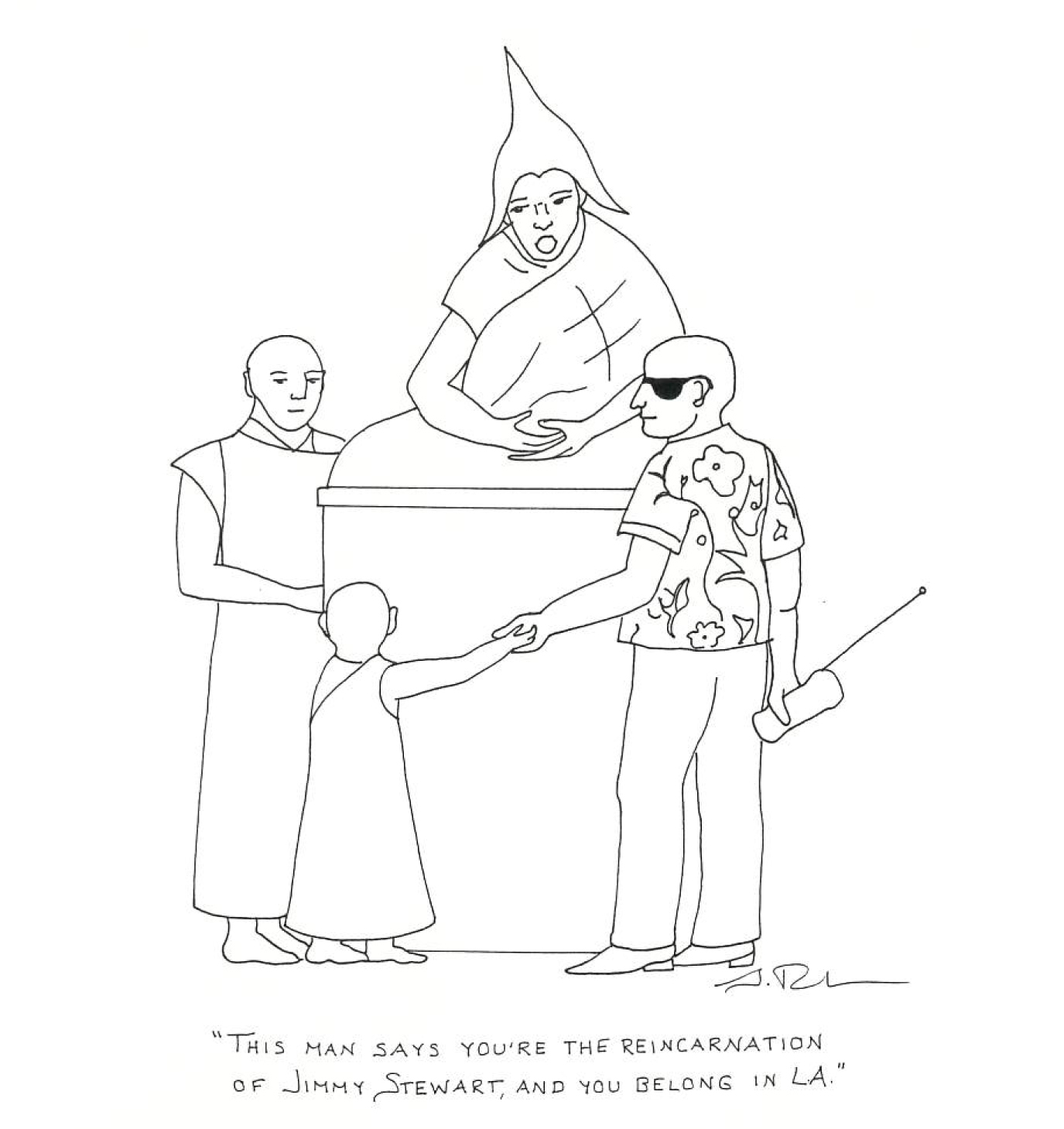
Less is More
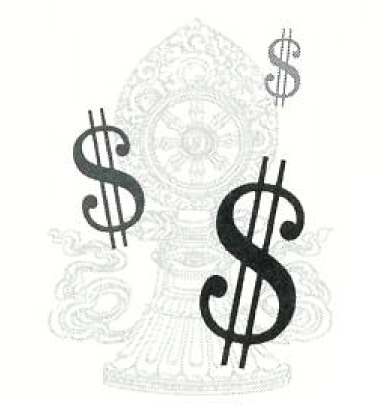
I am writing this letter to confirm Laurene Peterson’s thinking (Tricycle, Fall 1997) that there must be some non affluent Caucasians among Tricycle readers, although Ihave never wondered if I am “a really good Buddhist.”
In fact, I happen to be at the utmost opposite extreme of afflu ence: I am a prisoner in the Mass achusetts Department of Correc tions. I earn fifty cents a day. I worked eight hours a day, seven days a week for two months in order to purchase my subscription to Tricycle, which I believe is worth every cent.
I am curious to know whether Laurene Peterson has ever read anything in Tricycle besides the ads, such as the articles and inter views—I read every issue cover to cover, and in doing so have never encountered an indication that my path will end short because I am poor. My “dharma goods” is my mind; my “retreat” is a nine by-six-foot cell; my “ergonomically and spiritually correct meditation bench” is a concrete slab. Should I then cancel my subscription because most of the reader ship is better off than I am?
I think that Laurene Peterson should delve into the Sutra-pitaka because somewhere in there is something about the Buddhadharma being of use to all—rich and poor. I’d be more specific, but maybe in looking, you will learn.
Mark Nordstrom #97021205
Dallas County Jail
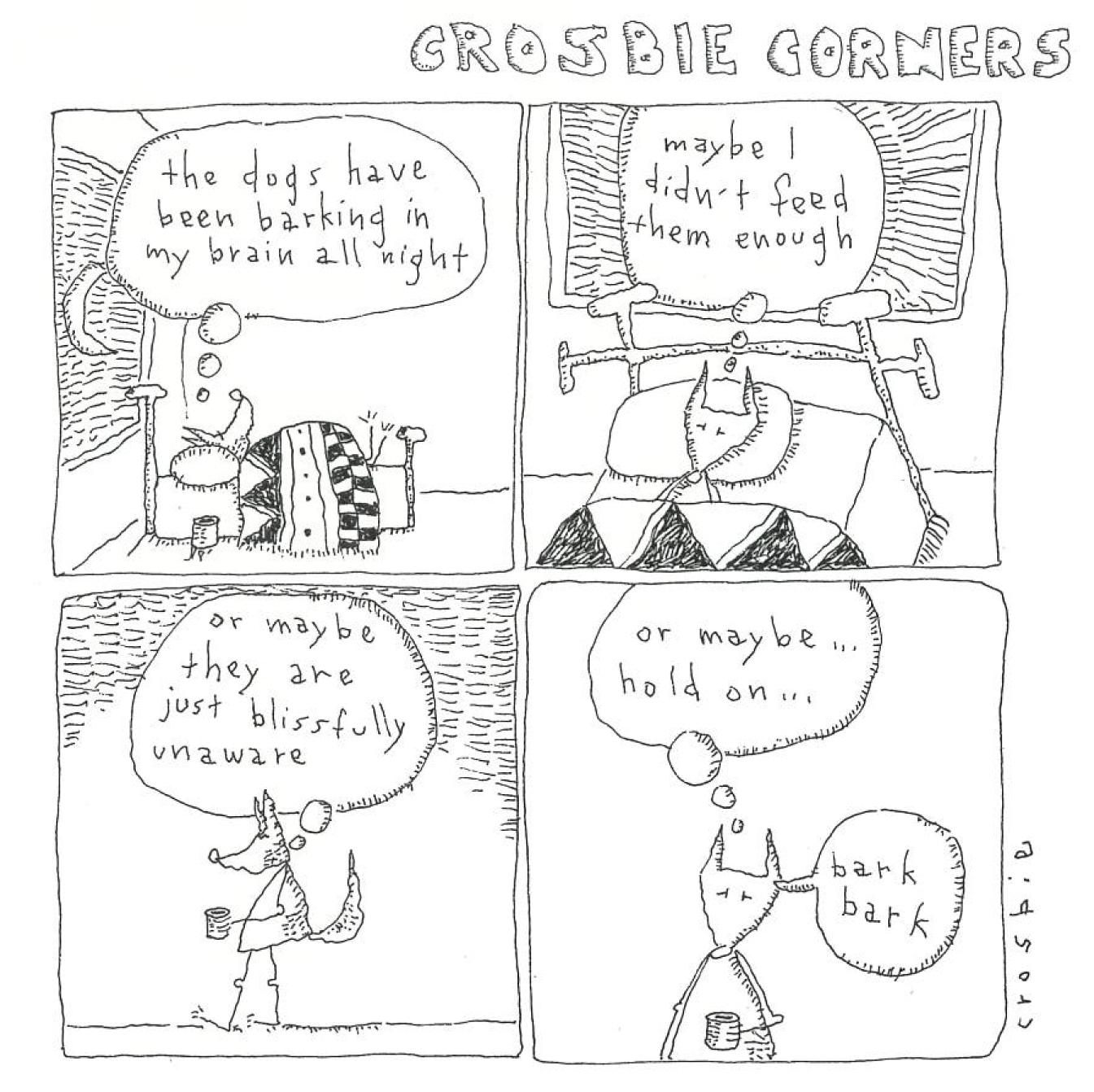
In response to Laurene Peter son’s letter in the Fall edition of Tricycle I would like to assure her that, yes, there are Caucasian Bud dhists who have taken refuge, and who do earn less than $80,000 a year in America. My wife and I together earn about $28,000 a year-Buddhists who cannot afford to go on anything more than weekend retreats and who do not own $400 malas! But we are Buddhist regardless of this lack of ostentation. Our jobs are ordinary and often boring, and we have responsibilities as householders which we dare to think more important than the requirements of our respective sanghas some times. It is tough, we know, amidst all the advertising pandering to our craving natures, to imagine that there could be practitioners who cannot afford such Buddhist chic.But we are out there.
S. Gwilym Thomas
Fairway, Kansas
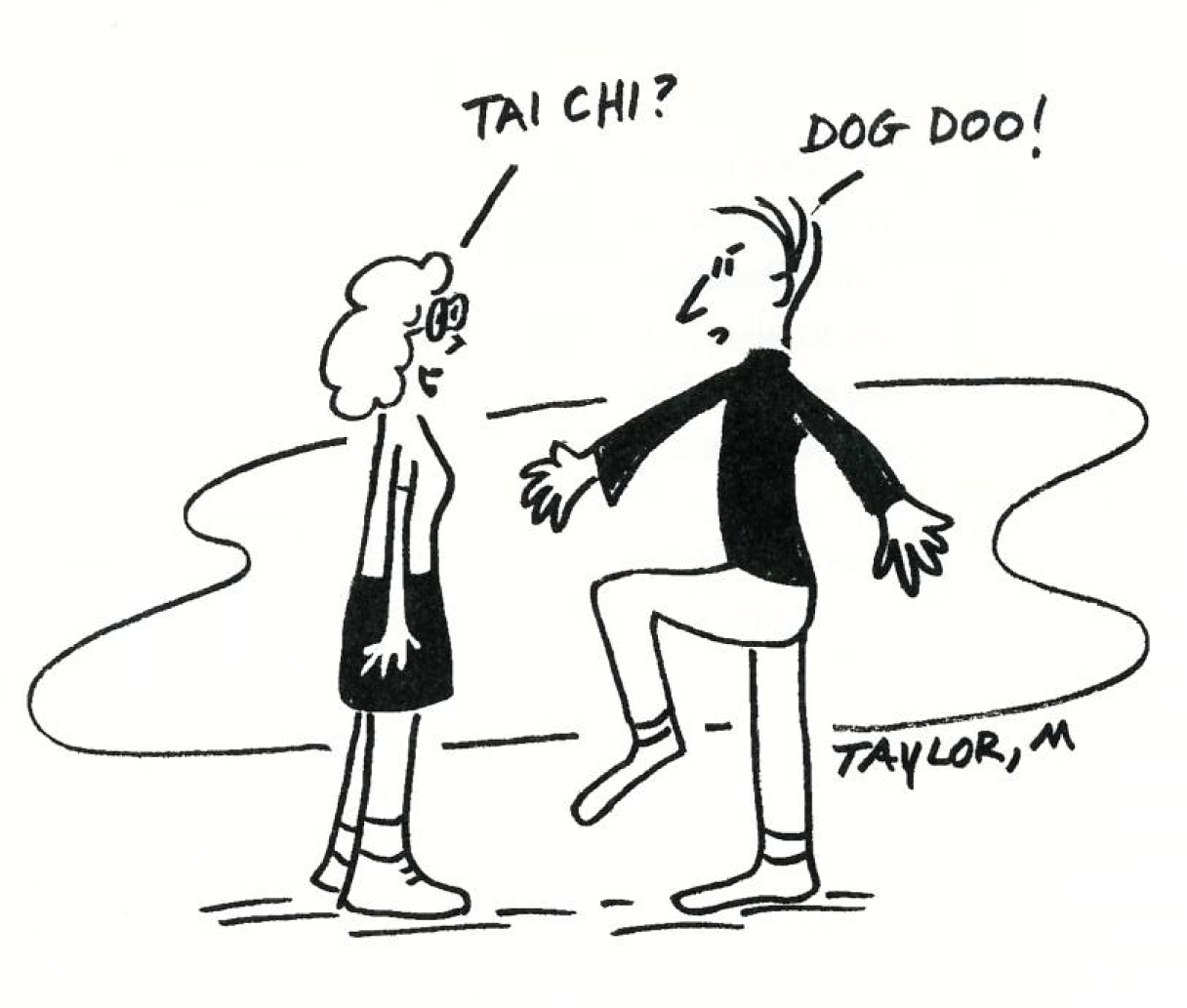
Debating the Debate
Although the great debate on reincarnation (Tricycle, Summer 1997) quickly devolves into a discussion of the implications of Batchelorism for the bodhisattva vow, these fellas never even touch upon one of the central paradoxes of the Northern Schismatics, as articulated hy the great Madhya-mika Nagarjuna (translated by C. Lindtner):
Bodhisattvas benefit living beings but do not see any living beings. This is indeed a very difficult point—exquisite—one cannot grasp it.
—Bodhisambhara, v. 72
Nagarjuna’s advice to Batchelorites would probably be:
Although the dharma is very difficult to believe in, one must have faith in it.
—Bodhisambhara, v. 130 b
This is in the face of the knowledge that:
Those who see tattva believe neither in samsara nor nirvana.
—Yuktisastika, v. 2.5
0 Batcheloriputra, all dharmas are forms of emptiness: not born, not destroyed, not stained, not pure, without loss,without gain.
H. L. Miller
Austin, Texas
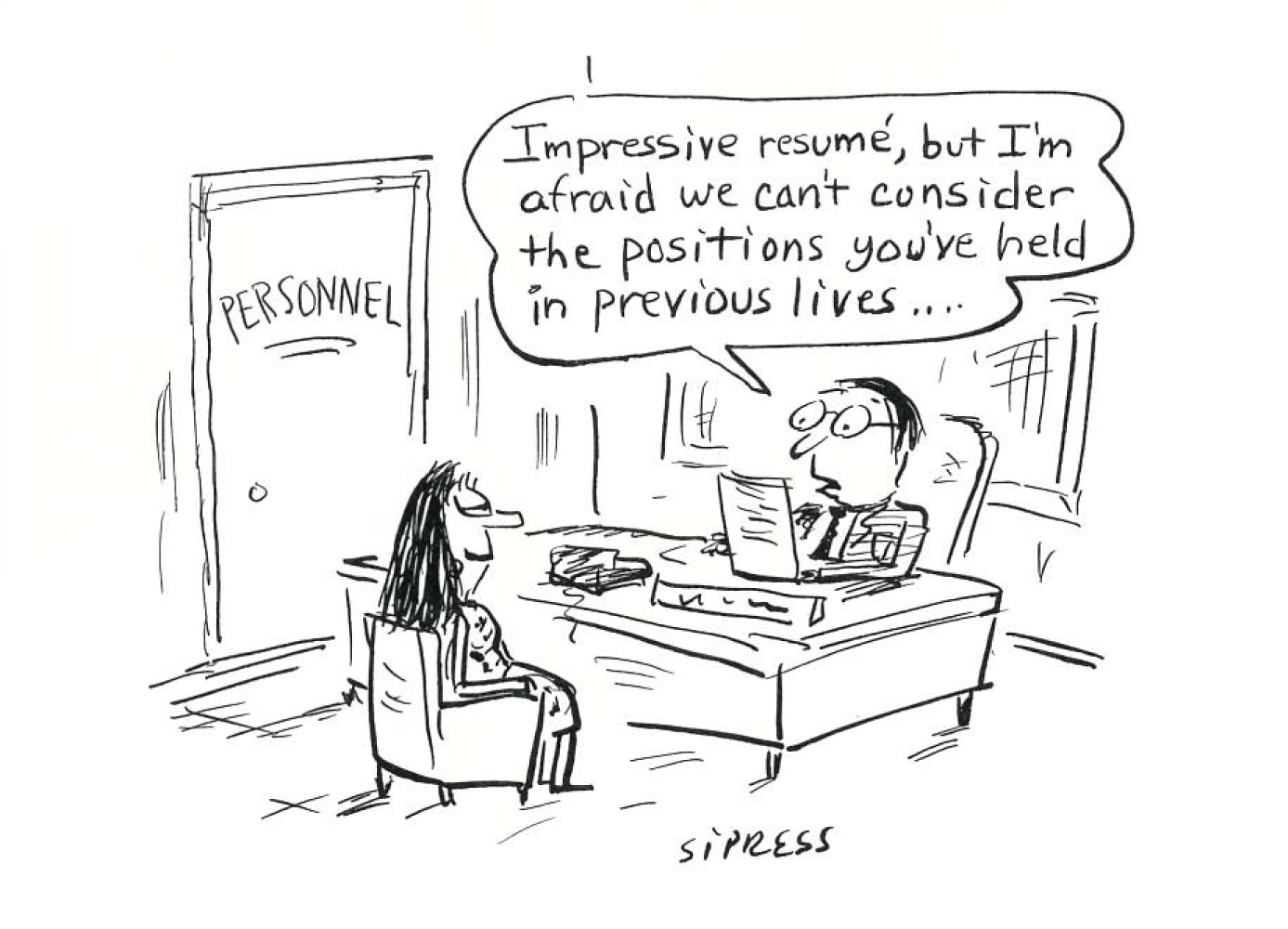
In the Summer issue’s reincar nation debate, Robert Thurman contended that to be Buddhist in the fullest sense of the term, one had to “be responsible for the sequence of former and future lives,” i.e., accept the notion of reincarnation.
In response to Thurman it could be answered that (1) over and over again Buddhism denies the notion that there is a separate, independent, and enduring sub stance in objects, and ego or soul in human beings. Without an eternally enduring “self-substance,” what is it that could possibly rein carnate through various lives?
(2) There are indeed many refer ences in Buddhist literature to past and future lives, but these can be regarded as temporary conces sions to existing pre-Budd hist beliefs in the cultures of countries in which Buddhism was adopted. This interpretation is supported by the fact that nirvana is often described as a state of freedom from the merry-go-round of birth and rebirth. Reincarnat ion is a belief to be reckoned with, but not as a final principle to be clung to.
From a biological point of view, before emerging from the womb everyone has undergone countless reincarnations while recapitulating evolutionary stages from amoeba, to plant, to animal, to human. Biologically speaking, we spend millions of years in the womb and only a brief time there after. From a social point of view, each of us has more or less reca pitulated previous stages of cultural development in the process of civilization. Each stage is a death and a rebirth, but a mere addition to previous stages. What is the point, then, of emphasizing a single, unchanging self-sub stance apart from the whole process of the universe? Only the unborn is unchanging, and it is not the exclusive property of any born creature or entity.
From a Zen point of view, we die and are reborn all day long as we realize ourselves as each and every thing we encounter. You die in hanging up the phone and are reborn in going to take a shower, for example. Dying is an integral part of living. Therefore there is no need for concern about past or future lives. Thus a Zen master, when asked where he will go after dying, can respond quite seriously (with what sounds like a quip) that he’ll become a cow and give milk to nourish people, or an ox to be used for the ploughing of fields, or that he’ll go to hell so he can receive and help stupid or willful Zen students.
If God (or Nature or Dharma) creates after my final death a rock from some of my atoms, hopefully I’ll be a proper rock. And if it cre ates a tree from some of my other atoms, hopefully I’ll do proper treeing. No promise is needed that I’ll be reborn in a ‘higher’ state, or as a hwnan being, or as any specific state at all. No promise is needed that there will be some memory of previous states. Whatever comes after death is okay because it is part of the dharma process, so, so be it!
Shozan (Dr. Marc L. Joslyn)
Bainbridge Island, Washington
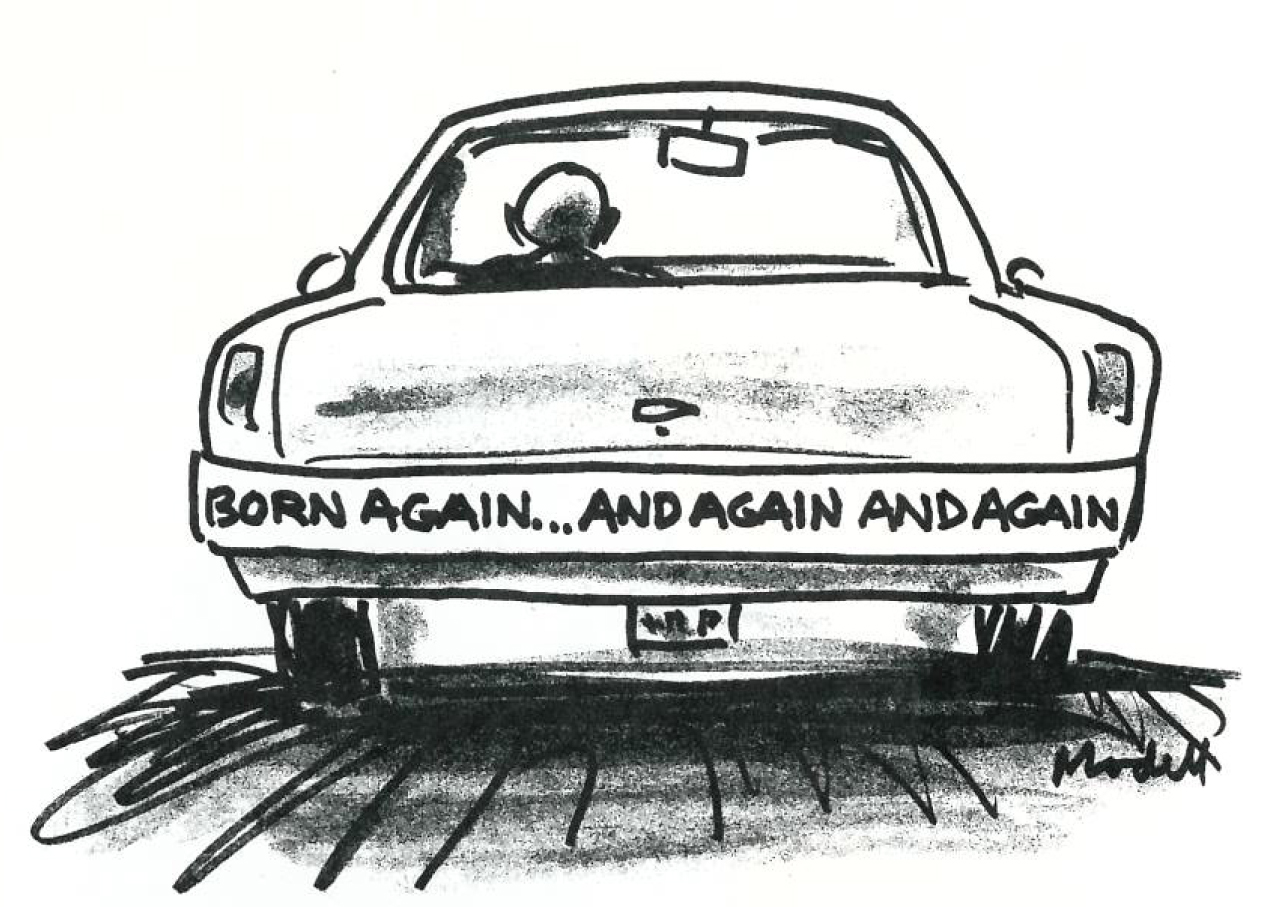
Thank you for subscribing to Tricycle! As a nonprofit, we depend on readers like you to keep Buddhist teachings and practices widely available.